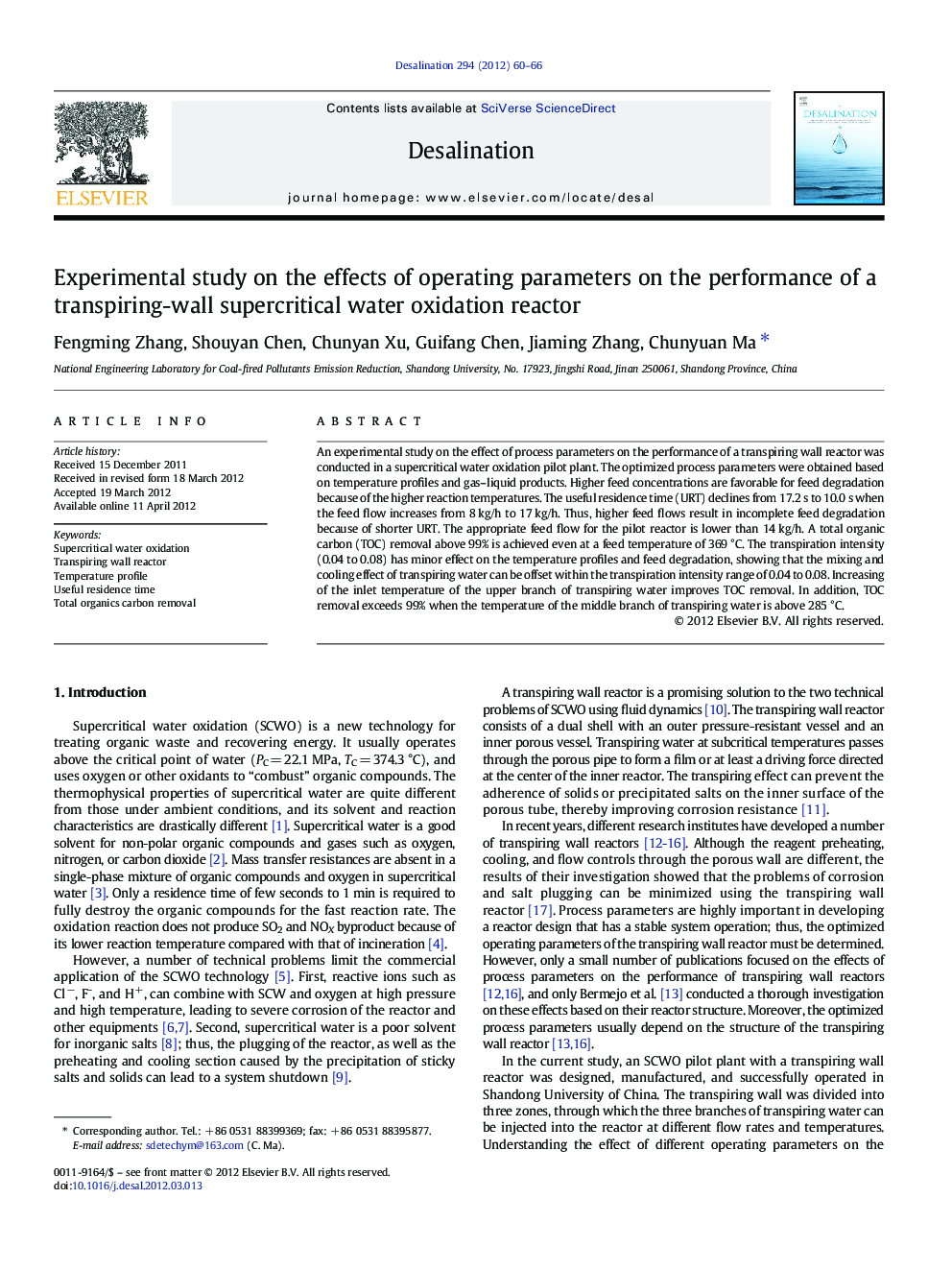| Article ID | Journal | Published Year | Pages | File Type |
|---|---|---|---|---|
| 624237 | Desalination | 2012 | 7 Pages |
An experimental study on the effect of process parameters on the performance of a transpiring wall reactor was conducted in a supercritical water oxidation pilot plant. The optimized process parameters were obtained based on temperature profiles and gas–liquid products. Higher feed concentrations are favorable for feed degradation because of the higher reaction temperatures. The useful residence time (URT) declines from 17.2 s to 10.0 s when the feed flow increases from 8 kg/h to 17 kg/h. Thus, higher feed flows result in incomplete feed degradation because of shorter URT. The appropriate feed flow for the pilot reactor is lower than 14 kg/h. A total organic carbon (TOC) removal above 99% is achieved even at a feed temperature of 369 °C. The transpiration intensity (0.04 to 0.08) has minor effect on the temperature profiles and feed degradation, showing that the mixing and cooling effect of transpiring water can be offset within the transpiration intensity range of 0.04 to 0.08. Increasing of the inlet temperature of the upper branch of transpiring water improves TOC removal. In addition, TOC removal exceeds 99% when the temperature of the middle branch of transpiring water is above 285 °C.
► Experimental study on the performance of the transpiring wall reactor was conducted. ► Operating parameters were optimized based on temperature profiles and products. ► TOC removal of more than 99% is achieved even at a feed temperature of 369 °C. ► The upper branch of transpiring water's temperature directly affects the reaction. ► The transpiration intensity from 0.04 to 0.08 has minor effect on the reactor.
